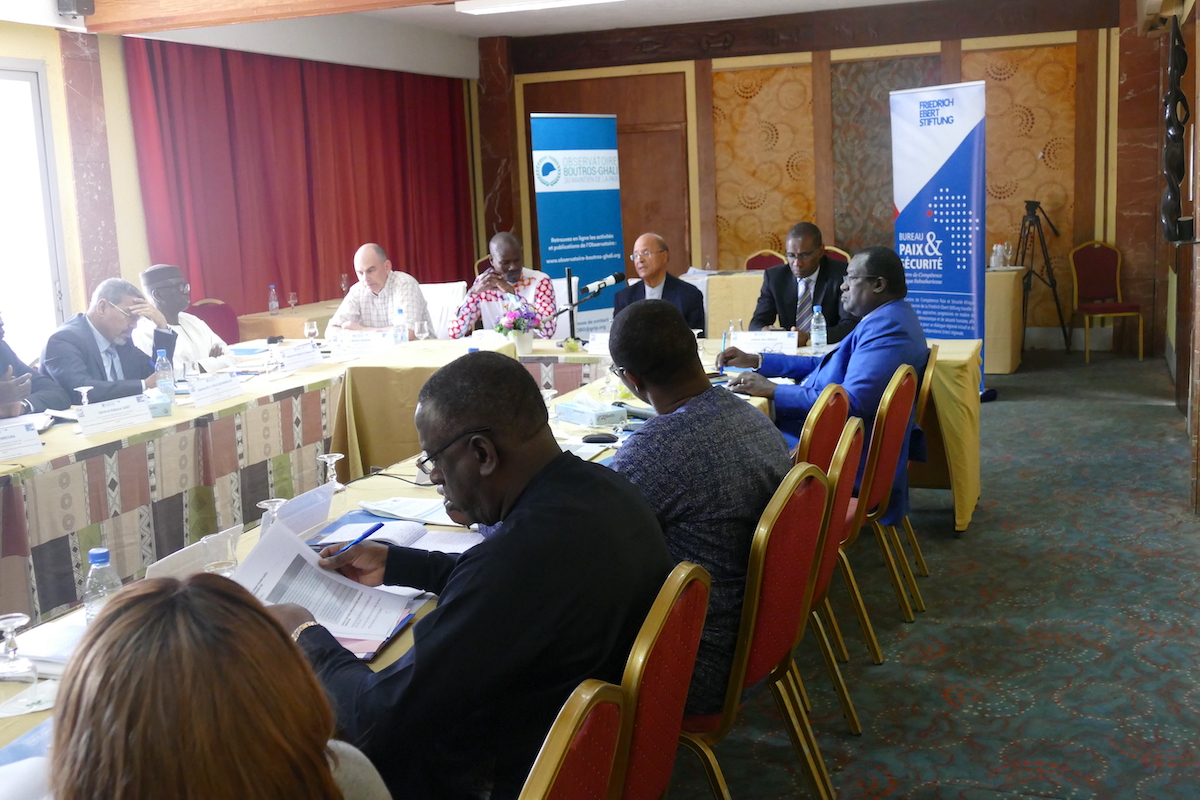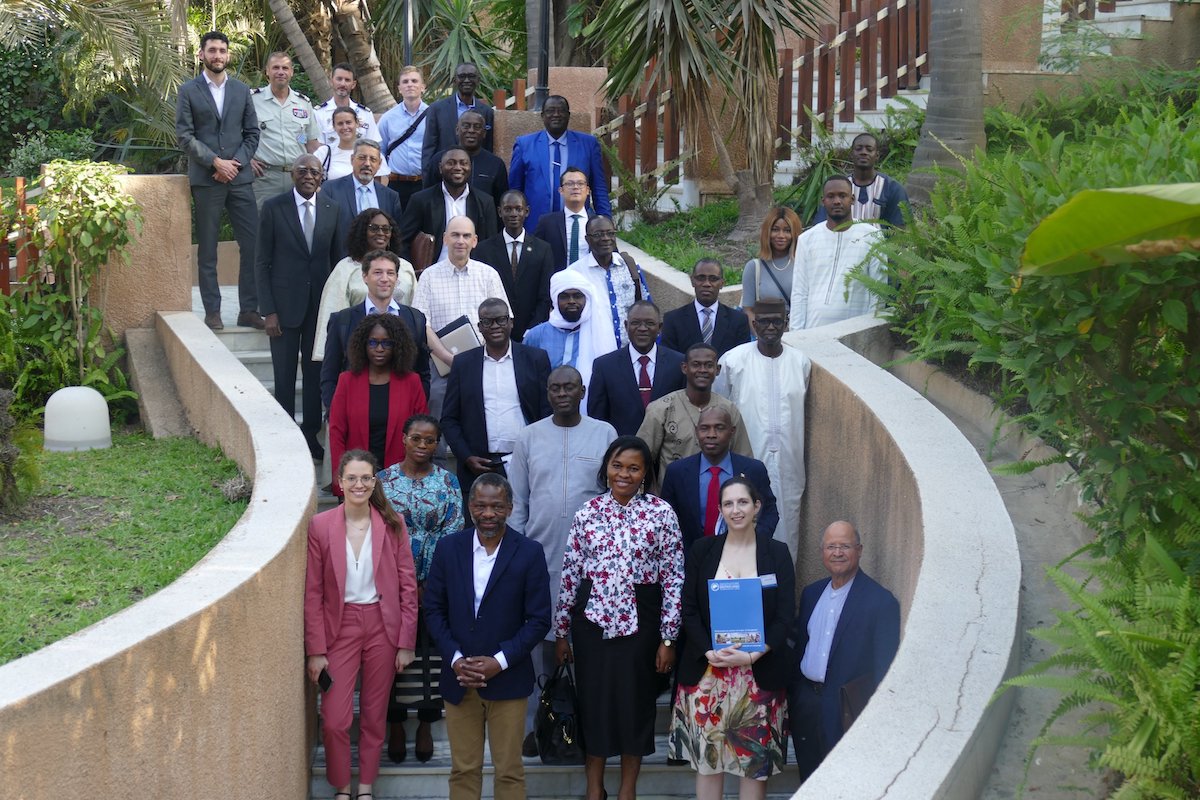Conference concerning the challenges regarding political, operational, and capacity aspects of the implementation of an African peace force under the aegis of the UN

In order to address the many political and operational challenges of peacekeeping, a New Agenda for Peace (NAP) will be presented at the end of 2024 by the current UN Secretary-General (UNSG), Antonio Guterres. This project, which aims to rethink the way in which the UN assumes its role as guarantor of peace and international security in a changing world, is in line with the Agenda for Peace established in 1992 by the then UNSG, Boutros Boutros-Ghali.
The 10 May event was intended to feed into the ongoing reflections on the future of peacekeeping, with a view to developing a New Agenda for Peace. In particular, it was intended to discuss the updating and strengthening of the UN's partnership with the African Union, sub-regional organizations, and the growing involvement of Troop Contributing Countries from the continent. This seminar was also an opportunity to consider new strategies for collective intervention that should provide an innovative response to the current difficulties of peacekeeping, while safeguarding its achievements. Three aspects were at the heart of the day's discussions: the political and normative framework of new operations under the aegis of the African Union, the essential modalities for their effective operationalization, and the adaptation of the training capacities of African countries to these new tools.
The conference was an opportunity to connect experts and relevant actors from the civil society, the military, academics, the media, and politics to discuss the aggravating security threats and transnational responses in Africa. Regarding the announced new agenda for peace by the UN, it seems imperative to re-examine past peace building and peace keeping missions in Africa. It is expected that the importance of regional organizations in enforcing peace will grow in cooperation with the UN. Hence, the focus was not just on the success and limits of past UN missions but lied on the potential of pan-African and joint regional forces as well. Additionally, it is important to connect the experience of different perspectives. Although the contribution of security forces is indispensable in solving current security threats, a pure military approach is not sufficient. That is why this conference brought people with diverse backgrounds together.
The examples of UN-peace missions in Africa during the past decade are abundant (MINUSMA, MINUSCA, MINUSCO, etc.). Yet the success of the international efforts to implement a sustainable peace is rather limited so far. Regional cooperations have not been able to stop the spread or to push back the violence of armed groups so far as well. The challenges are often a lack of financial and material resources, but also an insufficient political will to implement an effective cooperation. Therefore, new, or adapted approaches are necessary to cope with the current security threats. The panelists and participants focused in particular on the operational challenges and capacity shortfalls of peace missions, as well as the structural problems of the international system.
The conference panels focused on the following topics:
- What political and normative frameworks for action for peace operations under the aegis of the African Union?
- Towards a sustainable African regional force? Modalities and prerequisites for effective operationalization.
- Adapting the training offer of the Peacekeeping Schools (PGS) to meet the challenges of new mandates.
Faced the need to establish new African peacekeeping capabilities that are better suited to meeting the continent's needs, the UN and its partners must first and foremost learn from the experience of multidimensional UN peace operations in Africa. In this context, several policy recommendations evolved during the discussions and exchanges:
- The international system needs a reform in order to reflect the international realities of the 21st century properly. This comprises an appropriate say of African nations and an increased effectiveness of the security council.
- In order to enable fast and effective interventions, the focus on regional cooperation must be reinforced. This should include pan-African solutions like African anti-terror special forces.
- In order to ensure the ability to act effectively and reliable, the financing and the distribution of resources must be ensured sustainably. This might involve the support of international actors.
- A shift from a solely state-centric security understanding to a comprehensive humanitarian focus is necessary. This comprises traditional security threats, the protection of human rights, the inclusion of vulnerable groups in decision-making processes, a sustainable management of environmental issues and an equitable economic development.
- The personnel of peace missions should be adapted to the characteristics of the location of the operation. This comprises the knowledge of the language (e.g., French in francophone countries) but also cultural and religious circumstances. This increases the comprehension of the needs of the local population and thus the chances of succeeding in establishing sustainable peace in the region.

Friedrich-Ebert-Stiftung
Peace and Security Centre of Competence Sub-Saharan Africa
Villa Ebert
Avenue des Ambassadeurs
Fann Résidence
25516 Dakar-Fann
Sénégal